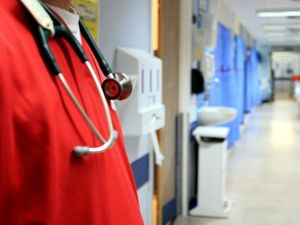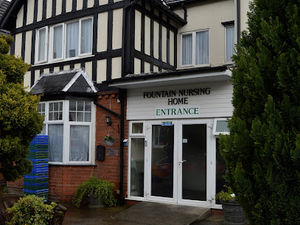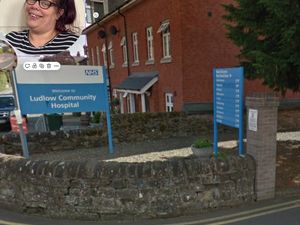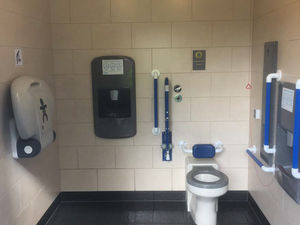Mixed views on end of life healthcare services in Shropshire
There are mixed views about healthcare services for end-of-life patients in Shropshire – with four in five people saying improvements could be made, a new study has found.

However, Healthwatch Shropshire, which spoke to patients, families and healthcare workers about their experiences, said overall "slightly more positive aspects" were reported.
A newly published report, outlining the findings, said the group received 33 patient and family experiences of end-of-life care last year.
There was praise for staff and the quality of care provided by Shrewsbury and Telford Hospital NHS Trust (SaTH).
But there was also a complaint that one patient, who was taken to A&E at Royal Shrewsbury Hospital 10 days before he died, had to wait almost eight hours to be admitted.
The report says the feedback received about Severn Hospice was "overwhelmingly positive".
There was a mixed reaction to community nursing services, with three negative comments, one positive and one mixed.
One person described difficulties in getting the help they needed, while another said the service was 'very caring and friendly'.
Feedback about GP practice services was mainly positive but two experiences were shared about the Shropdoc out-of-hours service, describing problems with communication.
Four families had negative experiences of the rooms and facilities available in hospital at the end of life.
A lack of good communication was raised as a concern in almost a third of experiences shared, and some said while family members could see that their relative was extremely ill, they felt that staff were not acknowledging the seriousness of their condition.
Several experiences were also raised regarding issues around accessing medication.
Conversations
In response, health chiefs said six pharmacies across Shropshire are commissioned to stock an extended list of palliative care medicines.
Shropshire Clinical Commissioning Group (CCG) said GPs are also advised to issue ‘just in case’ medicines to patients when they anticipate these are likely to be needed in the next two or three months.
Healthwatch Shropshire, which carried out the study in August and September last year, recommended that staff are trained for difficult and sensitive conversations, hospital facilities are improved and work is done to ensure patients can access medication when needed.
Lynn Cawley, chief officer of Healthwatch Shropshire, said: “We are very grateful that families who have just been through, or were going through, one of the most difficult times in their lives took the time to talk to us.
"We have shared the report with the local health services and are confident that the experiences that the families have shared will be used to improve the services offered in future.
"We are still keen to hear about people’s experiences, both good and not so good, as they are crucial in helping local services understand what is important to patients and their families and how things can be improved.”
In response to the report, SaTH said it had worked hard with other organisations to "join up care" as much as possible, and that the main issue was "identifying patients who are dying at an early enough point to enable good care to be delivered, and then communicating compassionately what this means to patients and their families".
The trust said staff were being offered training and there are 'swan rooms' for end of life patients, although not enough for all patients who die in hospital.
Shropshire CCG said the sample size could be considered small but issues had been raised which require action.
Shropshire Community Health NHS Trust said improving end of life care "has and continues to be a high priority".
To get in touch with Healthwatch Shropshire call 01743 237884 or email enquiries@healthwatchshropshire.co.uk





